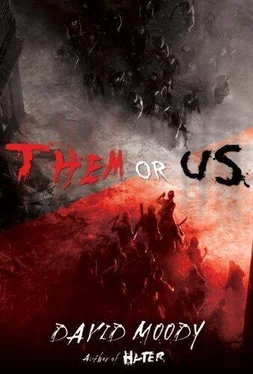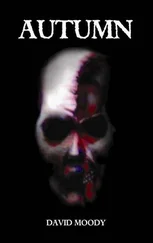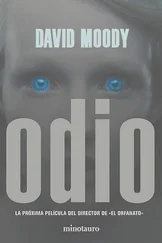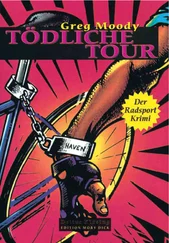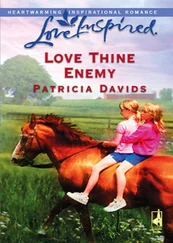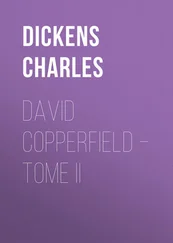“Just look at them, Danny,” he says, shuffling me around and gesturing over to where a group of them are sitting at a mess table, watching us nervously. “These people didn’t do anything wrong. They didn’t deserve any of what happened to them.”
“Neither did I. Neither did you. This war wasn’t anyone’s fault, it just happened.”
“But the fact the war’s dragged on is our fault. We have to stop the fighting.”
“The fighting will end when all the Unchanged are gone.”
“Do you really still believe that?”
“Yes,” I answer quickly, even though I don’t. It’s an instinctive reaction. Sometimes I think I say these things just because I’m used to saying them, like I’ve been conditioned to react. “You know as well as I do that we were all forced into this, forced to take sides and fight.”
“Maybe that’s where we’re still going wrong,” he says, starting to sound suspiciously like people I heard talking way back in the summer, just before I lost my daughter forever and half the country disappeared in a white-hot nuclear haze. “Look at what happened in Southwold,” he continues unnecessarily.
“This isn’t right, though. You shouldn’t be doing this.”
“Not helping these people wouldn’t be right either.”
One of the Unchanged closest to me shuffles his legs suddenly, and I almost overreact at the completely innocent movement.
“But you’re not helping them, are you? Can’t you see that? All you’re doing is delaying the inevitable. They’ll have to leave here eventually, and the second they do, they’ll be killed. Christ alone knows how you’ve managed to keep them alive down here for so long anyway.”
He gestures for me to keep my voice down, but I’m past caring.
“I did it because I had to,” he says. “Come on, Danny, these people have got nothing to do with the fighting. They’re just like you and me. You’ve got more in common with them than with Hinchcliffe and his fighters.”
There’s no point arguing, this deluded idiot isn’t going to listen. I look around this dank, claustrophobic bunker in disbelief. I’ve risked and lost everything to help wipe these bastards out, and all the time Peter fucking Sutton was sheltering them. Protecting them. I’m filled with anger, and all I want to do is kill the lot of them, Sutton included—but I know I won’t. I don’t even know if I can. I’ve killed hundreds of refugees like this, but I’m outnumbered now and in no state to fight today. Or am I just making excuses? I watch an Unchanged man sitting on the edge of a thin mattress on the floor, comforting a woman and holding her close. Despite the fact they both look skeletal and close to death, the way they are together reminds me how I used to hold Lizzie before all of this began.
Don’t be such a fucking idiot. You’re nothing like them and you had no choice. You did what you had to do. They are the enemy.
Is that really true? Did I have a choice?
“Just tell me why?” I ask, surprising myself by asking the question I’d been thinking out loud. I’m hoping Sutton will say something profound that will help make sense of this sudden madness.
“I’ll show you,” he answers, beckoning me to follow him deeper into the bunker. He gently pushes past an elderly Unchanged woman, acknowledging her by name as if she matters, then takes me down another short corridor and into a large L-shaped space. We have to step over and around even more people to get through. One man is badly burned, his face heavily scarred, but his wounds are clean and have been obviously been treated. “See that?”
“See what?”
“The kids. Right over on the far side, there’s a couple of kids playing.”
I follow the line of his gaze and quickly spot the children. For a few seconds I’m transfixed. They’re playing. These are the first kids I’ve seen since the start of the war who aren’t fighting or screaming, or throwing themselves at me and attacking, or standing swaying in a dark corner in a catatonic haze … these children are actually playing. They’re laughing and talking and interacting with each other. They’re pushing each other around and picking themselves back up and … and it’s hard to come to terms with what I’m seeing. This behavior—so normal and innocent—now seems strange and unnatural. It’s hard to believe that even now, even after being buried underground in this cold, damp, dark armpit of a place for who knows how long, they’re still managing to find something positive in their dire and hopeless situation. For the briefest of moments I almost feel a sense of regret. How many people like this have I killed?
FOCUS!
“What about them?” I ask.
“See the older girl with the boy on her knee? Sitting just over from the others?”
I immediately see who he’s talking about. Separated slightly from the rest of the young group and sitting in the soft circle of light coming from another lamp, a girl is holding a toddler. She looks like an underage mom, probably in her late teens, and he’s no older than two years old, three at the most. He sits on her knee and she holds him tight, arms wrapped around him, gently bouncing him up and down. She probably doesn’t even realize she’s doing it. It’s an instinctive, settling, protecting movement.
“That boy,” he says, his voice suddenly lower and the tone noticeably different, “is my grandson.”
“Your grandson? But how…?”
He moves me away, turning me around so I’m not staring. I can’t help looking back.
“Please … they don’t know. None of them know.”
“I don’t understand. How?”
“I don’t know what it was like for you, Danny, but I had my doubts about the war from the very beginning. I kept fighting because I thought I had to, because I thought I had to choose a side and if I didn’t kill them they’d kill me, but I didn’t get swept up on the wave of it all like everybody else did. I started to wonder whether there really was a difference between us at all, or whether the Hate and the Change were just the results of some massive, manufactured social paranoia.”
“You think? After all that’s happened?”
“Why not? How many people did you know who were religious? There used to be thousands of religions with barely a shred of evidence between the lot of them, all of them the product of overactive imaginations, superstitions, and fear. People used to kill each other because they believed in different versions of stories that could never be proved or disproved, used to let themselves die because some book said they shouldn’t have blood transfusions, used to cut their hair a certain way or grow their hair or cut off their foreskins or abstain from sex … None of the divisions between them were a million miles from what happened with the Hate, were they? Intangible. Inexplicable. Pointless.”
I don’t bother to reply. This isn’t the time for theological debate. If there ever was a God, he’s long since packed his bags and moved on.
“After a few weeks,” he continues, rant over, “I ended up back around the area where I used to live and where what was left of my family still were. That was where I fell in with Simon Penkridge and Selena, and they helped me learn how to hold the Hate. It was a logical progression. It felt natural and right.”
“But you didn’t get sent into the cities?”
“Like I said, I didn’t buy into the fighting like everyone else. I got out before it was too late. I don’t know, maybe people like you and me have got some predetermined setting that’s different from the rest. I think more people could have learned to hold the Hate if they’d stopped fighting long enough to be shown how. Maybe not the worst of the fighters, but the rest of them.”
Читать дальше
